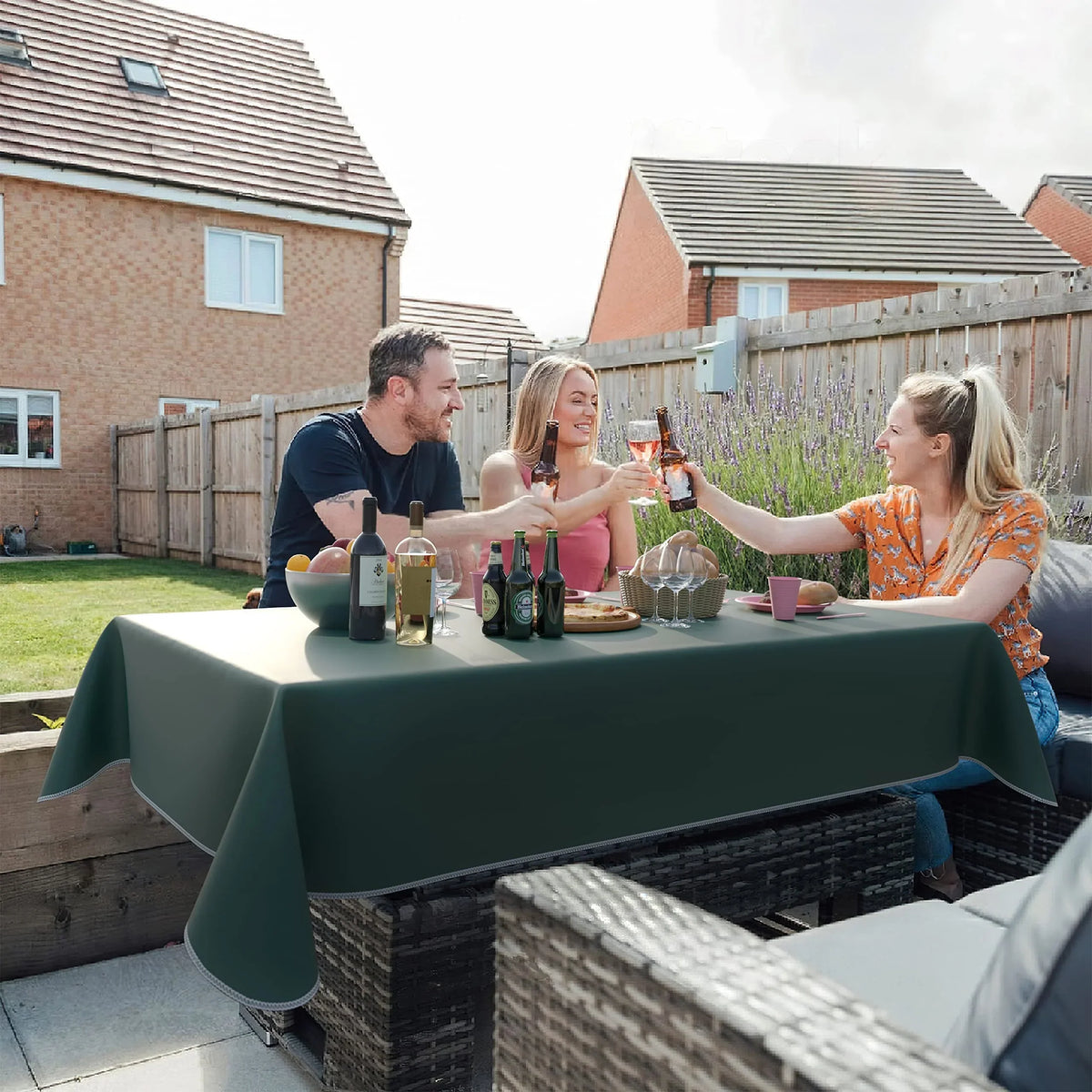
Tips & Tricks: Vinyl Tablecloths
|
|
Time to read 4 min
$6.95 Flat Rate USA shipping (to Continental USA)
SAVE 5% With Code: PARTY5 FREE Shipping from $49.99
Written by: Aslihan Yilmaz
|
|
Time to read 4 min
Vinyl tablecloths have gained popularity for their durability, easy maintenance, and aesthetic versatility. If you're considering using vinyl tablecloths but have questions about their safety, maintenance, and reusability, read along.
💡 Did you know
Vinyl tablecloths are made from PVC (polyvinyl chloride) material which is known for its waterproof and stain-resistant properties. PVC is a popular choice for tablecloths due to its ability to protect your table from spills and stains.
These are made entirely of vinyl without any additional backing. They are typically more lightweight and flexible, making them suitable for casual use and easy to clean. They are designed to protect your table from spills and stains while offering a wide range of colors and patterns to suit different décor styles.
Flannel backed vinyl tablecloths combine a vinyl top layer with a soft flannel backing. These have a layer of flannel fabric on the underside. The flannel backing provides prevents slipping and offers extra protection for the table surface. This construction not only provides excellent protection against spills and stains but also adds a layer of softness and stability to your table settings.
To remove stains from vinyl tabelcloths, using soap and water will do the job. For difficult stains such as ink stains, you may use a dab of nail polish remover to treat the stain.
💦 Spills from food items like sauces, oils, or drinks can leave stains on vinyl surfaces if not promptly cleaned. Residue from cooking oils, greasy foods, or cosmetic products can leave stains on vinyl surfaces. Certain chemicals, such as harsh cleaning agents or solvents, can discolor or stain vinyl surfaces if used improperly.
Yes, vinyl tablecloths are reusable. With proper care, they can last through multiple uses. After each use, wipe them clean with a damp cloth and store them flat or rolled to prevent creases.
A ballpark estimate for the lifespan of a vinyl tablecloth would be approximately 2 to 5 years. This range accounts for variations in quality, maintenance practices, frequency of use, and environmental factors that can affect durability.
Pros:
Cons:
No, vinyl tablecloths should not be ironed. However, to smooth out wrinkles, you can place a towel on top and iron it on low heat. The heat can damage the vinyl, causing it to melt or warp. If wrinkles are present, gently smooth them out by laying the tablecloth flat in the sun or using a hairdryer on a low setting. If the only option is ironing, make sure to do it on low heat.
Vinyl is waterproof and can withstand exposure to water without getting damaged. This makes it a popular choice for various applications where water resistance is important, such as outdoor furniture upholstery, rain gear, and even certain types of flooring. The waterproof nature of vinyl fabric is due to its synthetic composition, typically made from polyvinyl chloride (PVC) or similar materials, which repels water rather than absorbing it.
 Image by Anca Gabriela Zosin
Image by Anca Gabriela Zosin
In general, vinyl table covers shouldn't be machine washed like regular clothes. However, you may put it on gentle cycle and wash in cold water once in a while. For everyday maintenance, it's enough to wipe spills with a damp cloth or sponge. For deeper cleaning, wash with mild soap and water, then rinse thoroughly and air dry. Avoid using harsh chemicals or abrasive scrubbers, as these can damage the vinyl.
Vinyl tablecloths offer a practical solution for protecting your table with style. They are safe when chosen wisely, easy to maintain, reusable, and simple to clean. Whether for everyday meals or special occasions, vinyl tablecloths provide both functionality and aesthetic appeal, making them a versatile choice for any home.
Thanks for subscribing!
This email has been registered!